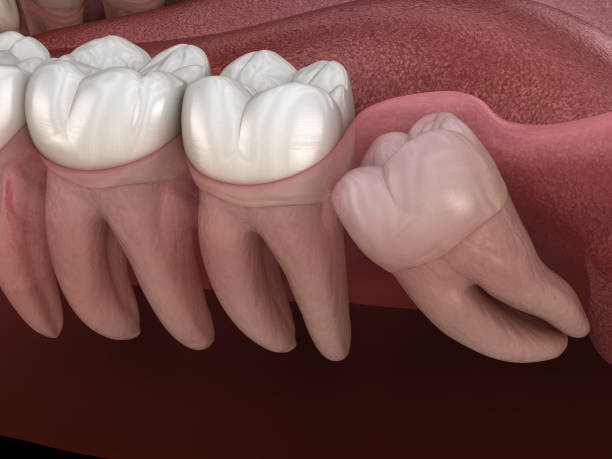
Are you feeling any pain, Hot/cold sensitivity, or an impacted teeth issue? It can be due to grown wisdom teeth. These are the third set of molars that usually develop between the ages of 15-25. But when wisdom teeth begin to emerge, they start to shift and impact the alignment of your teeth and jaw. In such cases, braces also cannot help in straightening these teeth. Hence the only option you left with is wisdom tooth extracting.
This method is used to provide relief from painful symptoms. However, here in the post, we have listed some signs and risks associated with wisdom tooth extraction. So, let’s roll down and know more!
When To Get Your Wisdom Teeth Out?
There are times when wisdom teeth grow from different angles, horizontally, or don’t have enough room to enter fully. Here we have listed a few cases in which wisdom teeth should be removed. They are as follows:
- Stay completely hidden in the gums
- Partially emerges through the gums
- Crowd near teeth
But if you don’t feel any pain, and your wisdom tooth is not overlapping your other teeth, causing tooth fall off, or causing gum disease, you may not need to have your wisdom teeth removed.
Some dentists also believe in removing wisdom teeth before they start creating problems or fully develop. While other dentists also recommend removing them at a younger age, as recovery is faster and easier before the bone and roots of the teeth are fully formed. Besides, many young people choose to have their wisdom teeth pulled out before they even cause any problems.
So, it is up to you whether you want wisdom tooth extraction or not. You can also take advice from your dentist.
Signs That You Should Remove Wisdom Tooth
Here we have listed common signs that you need to remove wisdom tooth include:
- Tenderness and Pain: While eating, brushing, or doing nothing at all, you experience pain, tenderness, or a slight throbbing sensation. It is time to schedule an appointment with your dentist to have your wisdom teeth removed.
- Jaw Stiffness: If you are facing stiffness around the jaw, it means that your wisdom teeth have started to move your teeth and jawbone. Therefore, having difficulty opening and moving the mouth and jaw can indicate removing a wisdom tooth.
- Inflammation around the gums: When your wisdom tooth begins to stick out, it can cause inflammation of the gums. It will appear reddish, slightly swollen areas along the gum line that are painful to the touch and even make it difficult to clean when brushing.
- Sinus Problems: If you experience sinus pressure, congestion, or pain, these are indications that you should have your wisdom teeth removed.
- Bleeding Gums: If you find that the back gums in your mouth are bleeding when you brush your teeth, it might be your wisdom teeth attempting to grow in.
- Development of cysts: After a long time, cysts start to develop in your mouth if wisdom teeth are ignored. It is a sac filled with fluid that can impact and damage the roots of neighbouring teeth.
- Bad Breath and Taste: It can be problematic to clean the delicate gum tissue surrounded by impacted or misaligned wisdom teeth. Hence, can lead to infection and create unpleasant taste continuously in the mouth and extremely bad breath.
However, if you have any of the above signs, it is time to make an appointment with a nearby wisdom tooth specialist. Your symptoms could indeed indicate that it is time to have your wisdom teeth removed, and a dental professional can tell you for sure if it is.
Risks Of Keeping Wisdom Tooth Extraction
If you don’t choose your wisdom teeth pulled out option, you may experience the following symptoms:
- It can become impacted and trapped under the gums.
- May only partially burst and cause a flap of gum tissue to form.
- Make your gums sore, red, and swollen.
- High risk of contracting periodontal disease
- Develop cavities in the back of the mouth
- May damage surrounding bones and neighbouring teeth.
- Your wisdom teeth can make future orthodontic treatment problematic.
Make The Right Decision On Time!
Wisdom teeth are not always welcome! However, there are situations when it can cause minimal to severe issues. So, when it comes to deciding, you ultimately have two options:
- Don’t have your wisdom teeth removed.
- Have your wisdom teeth been removed?
Whichever option you choose from the two, you need to be more careful and consider all of the risks and rewards associated with making the decision.
If you are experiencing wisdom teeth symptoms or are interested in discussing the status of your wisdom teeth, consult with a professional Wisdom tooth extraction dentist for a careful checkup.